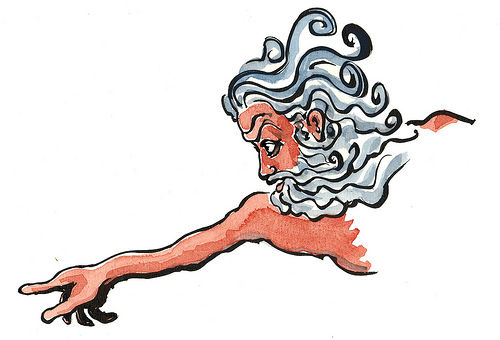
Know Thy Copyrights : Part 2 – Moral Rights
When used in conjunction with copyright, moral rights encompass:
The right of attribution: the requirement to acknowledge or credit the author of a work which is used or appears in another work.
The right to publish anonymously or under a pseudonym: self-explanatory.
The right of integrity of the work: the right for a creator to protect the integrity of the work against derogatory treatment.
All these rights can be retained by the copyright holder regardless of the status of the economic rights.
In practice, it means that if we assume Jane Doe is the creator of the work, the work, in this case being a book, these three moral rights would translate as follows:
The right of attribution means that when a third party uses all or part of her work and that she has to be named as the author of the work. This right is independent of any economic rights that are attached to the work and that might prevent her work from being quoted without express consent of the copyright holder.
The right to publish anonymously or under a pseudonym means Jane can choose to publish under another name or anonymously if she so wishes. Of course, if she publishes anonymously, she could not claim right of attribution. She can for work published under a pseudonym.
The right of integrity of the work. The right of integrity is the right of an author to prevent others from doing things to his work which can hurt his reputation. So the author can prevent others from distorting, mutilating or misrepresenting his work.
The moral right of integrity is not be breached if the derogatory treatment is ‘reasonable’. What constitutes reasonable is unclear, but will take into account the purpose or manner in which the work was used.
Fan based website created by fans passionate enough about a work to create material based off or in homage to it are usually immune as long as they keep in mind what the original artist or author thinks about it. For example, J.K. Rowling has said that she finds genuine fan-fiction flattering but is alarmed at pornographic stories about her characters, and has sent cease-and-desist letters to websites that publish sexually explicit Harry Potter fan-fiction.
Then there is the question of parodies. By definition, parodies are derogatory, since they are making fun of the original work. To continue with J.K. Rowling, Michael Gerber’s parody “Barry Potter and the Shameless Parody” that sold over 400.000 copies, is definitely derogatory. Yet, Rowling did not sue him, though she technically could have.
The issue of infringement of copyright and parodies is a burning one. In UK, the May issue of Hargreaves Review of IP and Growth, called for the UK Government to put more ‘exceptions’ to copyright into law, indicating clearly that this point should be properly addressed and resolved.
In the meantime, parodies can still be defined as derogatory and are therefore liable to generate court action at the behest of the right holder, though as parodies are a kind of publicity, it is rarely the case.
For more info on copyrights issues : Literary Law Guide For Authors
Be updated as we go on-line. Like us on Facebook or follow us on Twitter!
